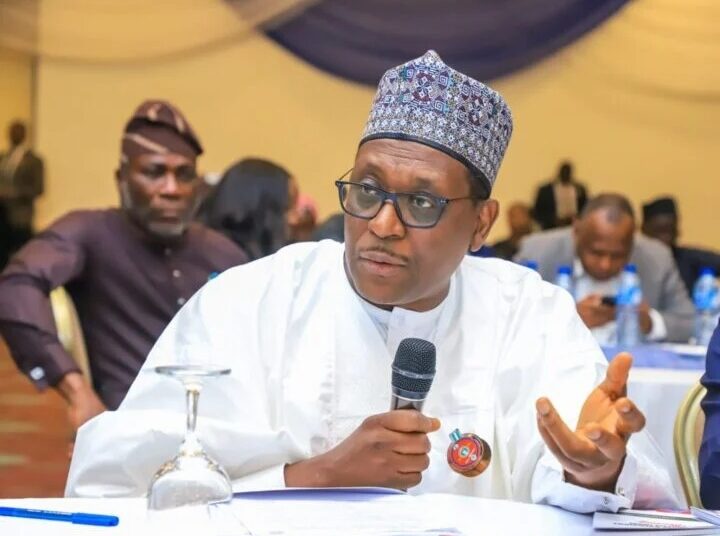The Ministerial Oversight Committee (MOC) on the Basic Healthcare Provision Fund (BHCPF) has approved the disbursement of N65 billion to healthcare facilities to strengthen primary health care delivery and advance progress toward Universal Health Coverage in the country.
The breakdown showed that the committee approved the application of ₦32,880,443,906.00 drawn from the first quarter of 2025 release towards the implementation of BHCPF activities for both the first and second quarters of the year, representing ₦16,440,221,953.00 allocated per quarter.
In addition, the committee approved the disbursement of ₦32,880,443,906.25 as the BHCPF Implementation Funds for the third quarter of 2025. This covers the cumulative allocations for April to June 2025 and is expected to be disbursed by the end of August 2025 or as soon as the appropriate authorities release the funds.
The MOC said this was done according to the provisions of the 2020 BHCPF Guidelines to ensure continuity and effective use of available resources.
This was disclosed in Abuja at the 11th MOC meeting, chaired by Prof. Muhammad Ali Pate, the Coordinating Minister of Health and Social Welfare.
During the key presentations by stakeholders at the meeting, the NHIA revealed that over ₦74.8 billion has been disbursed to the agency since the Fund’s inception in 2019. It stated that as of the second quarter of 2025, 2,649,221 beneficiaries have been enrolled under the BHCPF, with coverage across all 36 states and the FCT, and total health insurance enrolment has scaled up to 20,002,832 individuals.
Also, the National Primary Health Care Development Agency (NPHCDA) noted that 752 Programme Financial Management Officers (PFMOs) have been deployed, covering 98 per cent of LGAs. “To date, 6,512 of 8,354 BHCPF-supported PHCs have been visited, reflecting 78 per cent active oversight, while 301 PHCs were revitalised in the last quarter, bringing the total to 1,163 completed facilities as of June 2025,” the agency explains.
Addressing Journalists at the end of the meeting, the Chairperson of the Health Commissioners Forum, Oyebanji Filani, said the disbursements were to ensure that facilities can deliver effective services across the country.
About 8,000 facilities across the country can provide access, ensure that people have access to quality services, and deliver the commodities necessary to treat people.
“If you move around Nigeria, you can see the premier city centres in Nigeria are renovation sites because a lot of resources have gone into renovating. Beyond that, we are further equipping these facilities and bringing them to a level that ensures that we provide the services. A lot of training has been done for health workers to ensure they can respond to needs today.
“More importantly, we ensure that commodities are also in these facilities. So what that means is that more people will have access to good quality services, which in turn means that they can be healthier and become productive in the economy. So many things have resonated from this.”
Also, the Coordinating Minister of Health and Social Welfare, Prof. Ali Pate, emphasised that tackling the country’s healthcare challenges requires strong collaboration across all levels of government.
Prof. Pate said no single tier of government can address the critical issues of basic healthcare alone. However, he noted that ongoing collaboration is yielding encouraging results. “At least 37 million Nigerians have accessed services, 37 million visits to health facilities supported through the BHCPF. That’s a landmark achievement and a testament to the collaboration between federal, state, and local governments, civil society and the private sector,” he stated.
The minister also highlighted progress under the Presidential Initiative on Vaccine and Pharmaceuticals (PIVAC), noting the growing interest in local manufacturing of health products. “Our industry is beginning to reap the benefits. The demand is being better organised through platforms at the federal level, and state-level drug management agencies and innovations are playing key roles. It’s a fascinating time,” he said.
Prof. Pate stressed the importance of political commitment, particularly from state governors and primary healthcare agencies. “Each state is different, and we see governors and commissioners working closely with us. We must continue to partner effectively and hold each other accountable through data and results. The path may be imperfect, but we are moving forward.”
Speaking on the role of local governments, he clarified that they have been integrated into the national health compact through the NPHCDA. “Local governments are essential partners, but they can’t do it alone without the states, and the federal government also has a supporting role. It’s a collaborative approach, not a fragmented one.”





